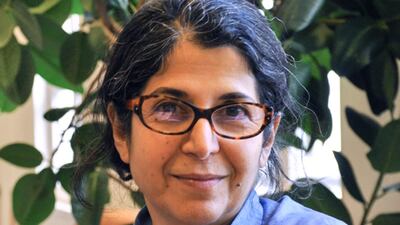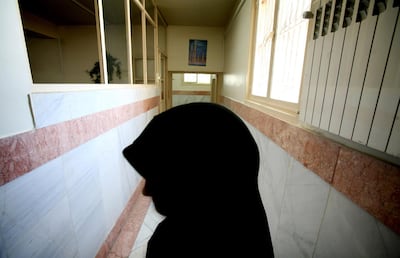Iran has temporarily released French-Iranian academic Fariba Adelkhah, her lawyer said on Saturday.
"Fariba Adelkhah has come out [of prison] on leave with an electronic ankle bracelet," Saeid Dehghan said in a tweet, without giving other details of the furlough.
Ms Adelkhah was sentenced to six years in prison on national security charges in May and is being held at Tehran’s notorious Evin prison.
The 61-year-old, who was arrested in 2019, is one of a number of Western-linked hostages in the Iranian prison system.
At the end of September, France's foreign ministry summoned Iran's envoy over the country's human rights record, signalling concern about what Paris calls "serious and constant violations".
France rarely comments publicly on human rights in Iran, but on September 22 Foreign Minister Jean-Yves Le Drian said more needed to be done over what he said were worsening human rights violations following anti-government protests in November 2019.
Political prisoners were largely left out of a mass prisoner release programme in March, which was intended to limit the spread of the disease in Iran’s overcrowded and unhygienic jails.
Among the few who were released was Nazanin Zaghari-Ratcliffe, an Iranian-British aid worker, who remains at her parents’ home in Iran but faces the threat of a new trial that could extend her five-year sentence which is due to end in April next year.
Jailed human rights lawyer and campaigner Nasrin Sotoudeh staged a 45-day hunger strike to demand the release of political prisoners during the Covid-19 crisis in Iran.
She ended the strike last week because of health concerns.
Ms Sotoudeh, who will not be eligible for release until she has served 12 years, was returned to Evin prison this week after a brief stay in hospital because of heart problems.
Her plight has drawn global support with the UN, legal organisations and rights groups calling for her to be freed. “Nasrin Sotoudeh should not have to risk her life in order to call attention to the authorities’ unlawful and cruel disregard for the lives of political prisoners,” said Hadi Ghaemi, the executive director of the US-based Centre for Human Rights in Iran.


